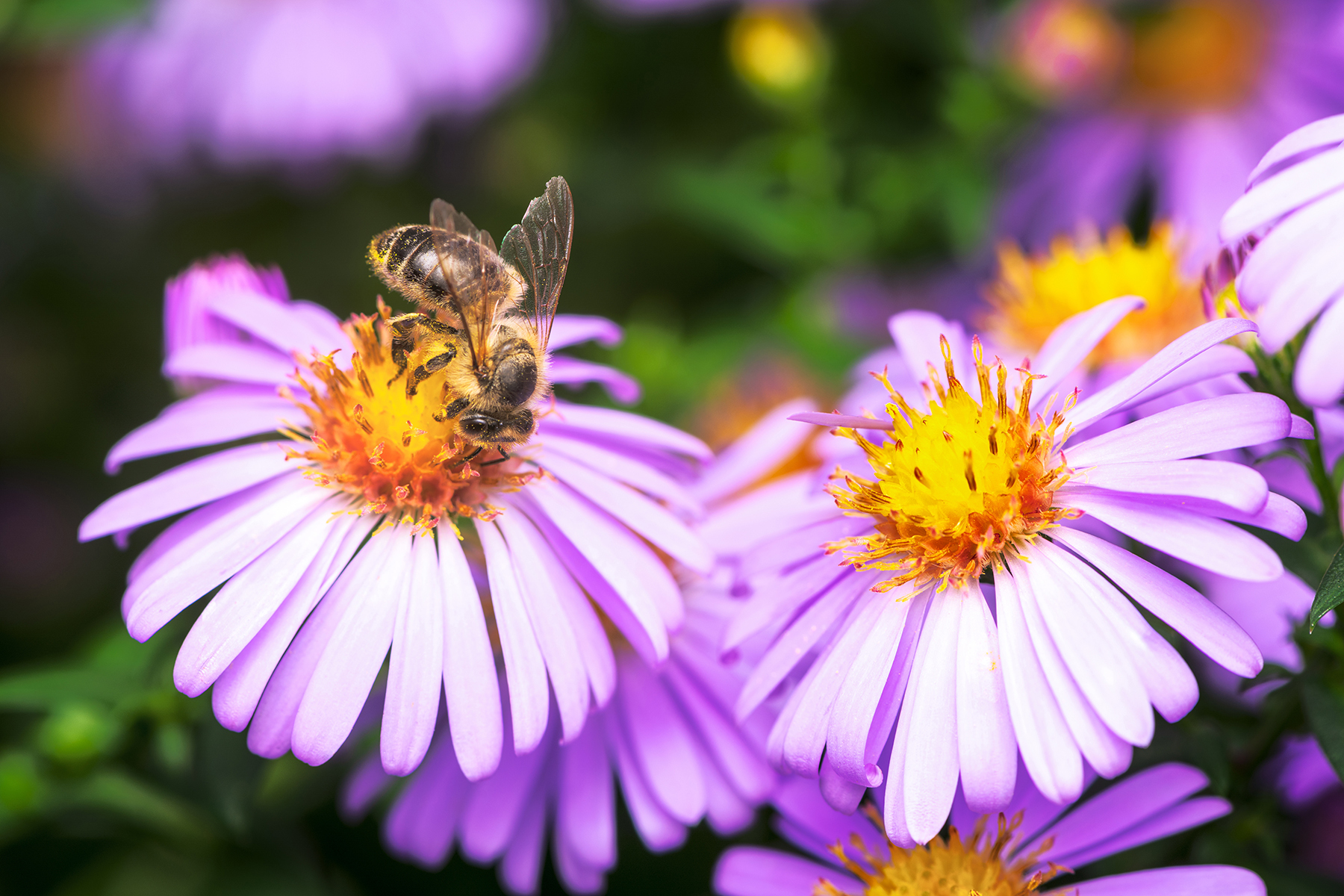Planting A Pollinator Garden

Pollinator gardens are great for adding interest and diversity to your yard – and in a world that is becoming increasingly urbanized, they also help in restoring the beneficial insects that are crucial to our ecosystems. These gardens are designed to attract bees, butterflies, moths, flies, beetles, bats, and even hummingbirds. But why would you want these critters in your backyard? Because they perform the crucial ecosystem service of pollination, making it possible for our food and flowers to grow.
There are many factors that have been putting pressure on pollinators. Creating a pollinator-friendly yard can help address one of the biggest issues – urbanization. The loss of a habitat that provides sites for overwintering, foraging for pollen and nectar, or nesting has been extremely detrimental. Creating a pollinator garden for your home can be a relatively simple task, as it requires minimal upkeep, and provides a positive impact for these important critters.
Creating a pollinator garden is a fun and rewarding project that the whole family can enjoy. As a mother and grandmother, I am always looking for things my family can do together. Creating a pollinator garden is not only fun and educational, but it also gets the whole family outdoors and away from their screens. It also creates a rewarding feature in your yard you can enjoy together for years.
Also, finding ways to teach the benefits of protecting pollinators ensures that everyone understands their role in our ecosystem and food chain. Involving your children is not only educational, but it will also help them make eco-friendly choices as adults. They can take what they learned as children and apply it to their future, educating others along the way.
Native plants share a long evolutionary history with their pollinators, so including a wide variety of natives will make your garden a favorite destination for them. Choose carefully to match the site conditions; natives will flourish without the addition of fertilizers and pesticides. Examples of great North Carolina plants include asters, daisies, golden rods, and sunflowers. For a more comprehensive list of plants native to North Carolina, check out the Pollinator Conversion Guide page on the NC State Extension website at growingsmallfarms.ces.ncsu.edu/growing-smallfarms-pollinatorconservation/.
Avoid modern hybrids which often have been bred to produce larger blooms and color but may have lost their ability to produce nectar and pollen. When buying annuals, purchase older heirloom varieties known to have them.
Some pollinators emerge in early spring, while others don’t appear until mid-summer, but they all need pollen and nectar while they are active and rearing their young. To maximize the effectiveness of your habitat, have a variety of plants in bloom throughout the season. Overlapping bloom times will ensure there is always something in your garden to provide nutrition for pollinators.
And plant in drifts. Pollinators are more likely to find plants in gardens that provide larger drifts of color. Get at least three of one kind – more if you have the room – and plant them near one another.
Pollinators overwinter in different life stages: eggs, larvae, pupae, and adults. Some overwinter in hollow stems, while others attach to plants. Some overwinter in the leaf litter. To protect overwintering pollinators, don’t cut down your perennial gardens un-til spring, and keep beds of leaves intact through the winter.
To attract butterflies, include a variety of larval host plants for caterpillars to consume. These caterpillars will eat the leaves of their host plants, so don’t panic when you see some holes … it just means the plants are doing their job. You can find many lists of larval host plants online.
Planting a pollinator garden is more important than you may realize. Even a small garden can make a huge difference, as pollinators have suffered greatly from loss of habitat, misuse of chemicals, and spread of invasive plant and animal species. But just as important as building a safe place for our critical pollinators is the fun you and your family will have creating your own pollinator garden, and the enjoyment and satisfaction it will give you year after year.
Margarita Cohen
The owner of Mosquito Joe of Raleigh, Durham, and Chapel Hill, making "Outside Fun Again" with mosquito control treatments for residential and commercial customers. For more information or to schedule an appointment for treatment, call or visit their website.
- www.Raleigh-Durham-ChapelHill.MosquitoJoe.com
- 919-926-8851

